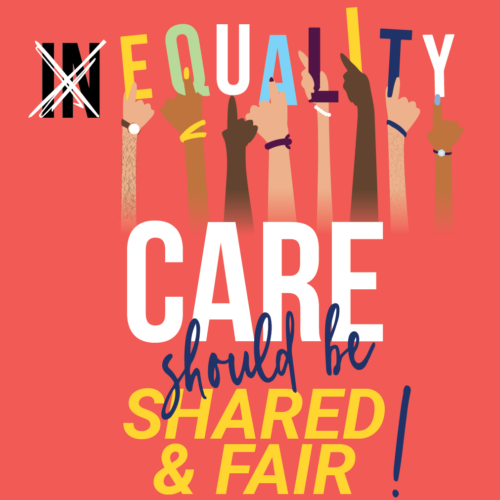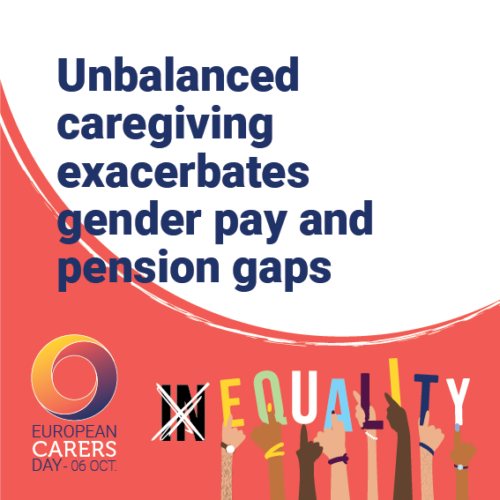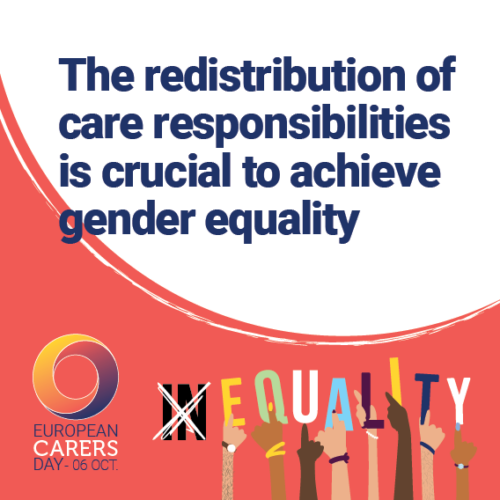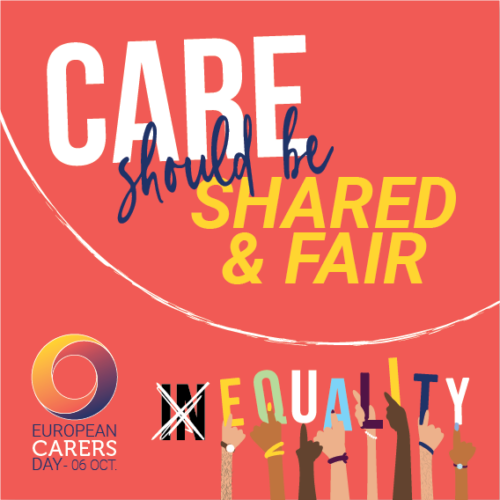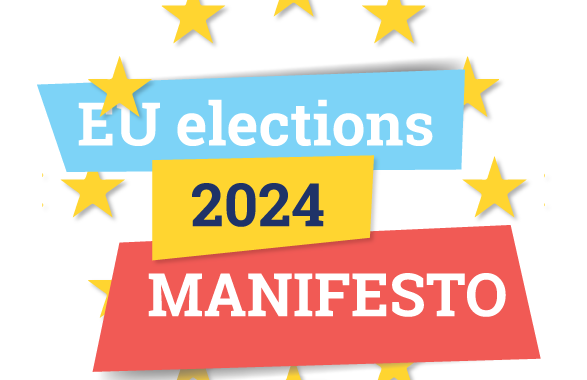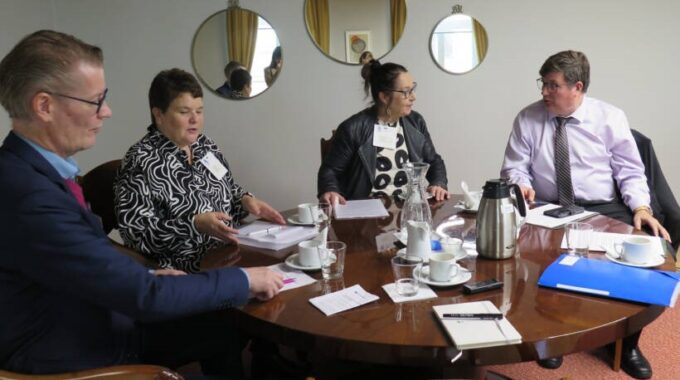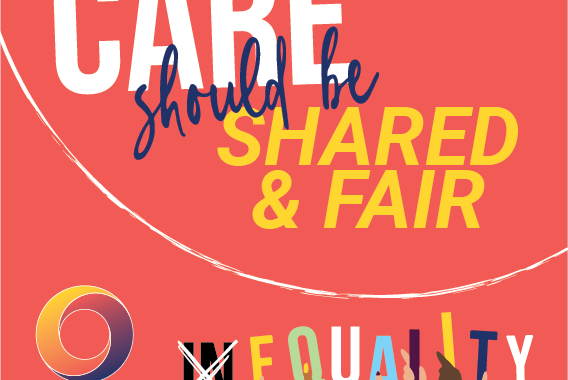
Act Today to Drive and Support Gender Equality in Caregiving
Equality Care Should be Shared and Fair
This European Carers Day, Eurocarers and its members are calling on all European governments to tackle gender equality in caregiving, shine a light on the role of informal carers and highlight the need for more support and rights.
In Europe, 80% of care is provided by informal carers with at least 52 million people providing care to family members or friends on a weekly basis.[i] More than half of these informal carers are women and their responsibilities can hinder career opportunities, as well as access to education, adequate income and pension, and have a detrimental impact on their health and well-being.
As a result of unpaid care responsibilities, a staggering 7.7 million women are not able to work.[ii] Research shows that about one third (32.6%) of women aged 25-49 outside the labour force indicated that care responsibilities were the main reason for not seeking employment, compared to 7.6 % of inactive men.[iii] Regardless of whether carers are active on the labour market or not, they need to be recognised and supported, including via access to training, financial support, pension and health prevention.
Care services are essential to enable people to combine work and care duties, but they are not sufficient on their own. The difference in time devoted to unpaid care work by women and men can only be tackled by taking a transformative approach that aims to revalue care work and tackle the stereotypes so that men and women are perceived as equally capable of providing care.
Through the recent launch of the new European Care Strategy published last month, Eurocarers is hopeful for more targeted European Union (EU) action to stimulate policy reform and establish clear procedures to identify informal carers and support them. In addition to ensuring quality, affordable and accessible care services across the EU, the strategy calls for proposals to advance gender equality and empowerment of women including via the promotion of carer-friendly practices in companies and encouraging an equal sharing of informal care between women and men via the valorisation of care responsibilities.
The recognition of informal women carers acknowledges their contribution to society and on the way to help guarantee that their needs are effectively addressed. To ensure the EU Care strategy delivers concrete results, Eurocarers believes it should be treated as a prominent priority at all levels and include all stakeholders at EU, national, regional, and local level, including informal carers.
“We warmly welcome the adoption of the long-awaited EU Care Strategy – it is a major step forward for informal and long-term carers to not only acknowledge their contribution to society, but to ensure their needs are effectively addressed.” Stecy Yghemonos, Eurocarers’ Director commented. “I am hopeful that the strategy will tackle gender inequality in caregiving and that carers will finally receive the rights and support they deserve.” – he added.
Enforcement of the strategy will improve the situation for both carers and carers receivers to boost access to quality, affordable and accessible care services while improving While improving work-life balance, well-being, and social inclusion of informal carers.
Informal care should be a choice, not a necessity and carers should be supported. This European Carers Day, Eurocarers encourage others to join them as they call across Europe to focus on gender equality and work towards a fair and shared approach to caregiving responsibilities
To be part of the action this European Carers Day, please access and share the resources and further information via this website, www.eurocarers.org/ecd
+++
Notes to editors:
For further information, images and interviews please contact: oj@eurocarers.org
For further information about European Carers Day and campaign visuals and resources visit: www.eurocarers.org/ecd.
About Eurocarers
Eurocarers brings together carers’ organisations as well as relevant universities & research institutes – a unique combination that enables evidence-based advocacy. Our network works to ensure that care is valued, and unpaid care is recognised as central to the sustainability of health and long-term care systems. We believe that carers’ know-how and needs are worth listening to and people should have the right to choose freely whether they want to be a carer, and to what extent they want to be involved in caring. Our aim is therefore to act as a voice for informal carers, irrespective of their age or the particular health need of the person they are caring for by: (1) Documenting and raising awareness about the significant contribution made by carers to health and social care systems and the economy as a whole, and of the need to safeguard this contribution; and (2) Ensuring that EU and national policies take account of carers, i.e. promote their social inclusion, the development of support services, enable them to remain active in paid employment and maintain a social life.
References
[1] Study on Exploring the Incidence and Costs of Informal Long-Term Care in the EU. 2021. European Commission. Available at: Publications catalogue – Employment, Social Affairs & Inclusion – European Commission (europa.eu). (Accessed September 2022)
[2] Factsheet: Care Strategy. 2021. European Commission. Available at: https://ec.europa.eu/commission/presscorner/detail/en/fs_22_5363. (Accessed September 2022)
[3] Communication from the Commission to The European Parliament, The Council, The European Economic and Social Committee and The Committee of The Regions. On the European Care Strategy. Available at: file:///C:/Users/lenniee1/Downloads/COM_2022_440_1_EN_ACT_part1_v11.pdf. (Accessed September 2022)

